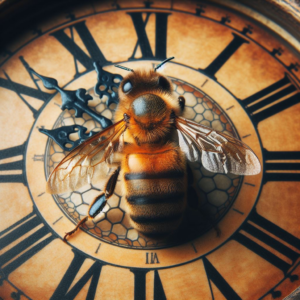Our beloved pets bring immense joy and companionship into our lives, but along with their cuddles and wet-nosed kisses, they can sometimes bring unwelcome hitchhikers. Yes, dog, we’re talking about fleas! These tiny, blood-sucking pests have a knack for infiltrating our pet’s fur and turning their adorable little bodies into non-stop itching machines.
Not only do fleas make our furry pals uncomfortable, but they can also lead dogs to more severe health issues if left untreated. Flea control is of paramount importance to ensure the well-being of our four-legged companions.
These persistent parasites can cause skin irritations, allergic reactions, anemia from excessive blood loss, and even transmit diseases such as Lyme disease or tapeworms. Therefore, it is essential that we take proactive measures to combat these nefarious critters and provide our pets with effective flea treatments.
Natural Solutions: An Introduction to Pest Management without Harsh Chemicals
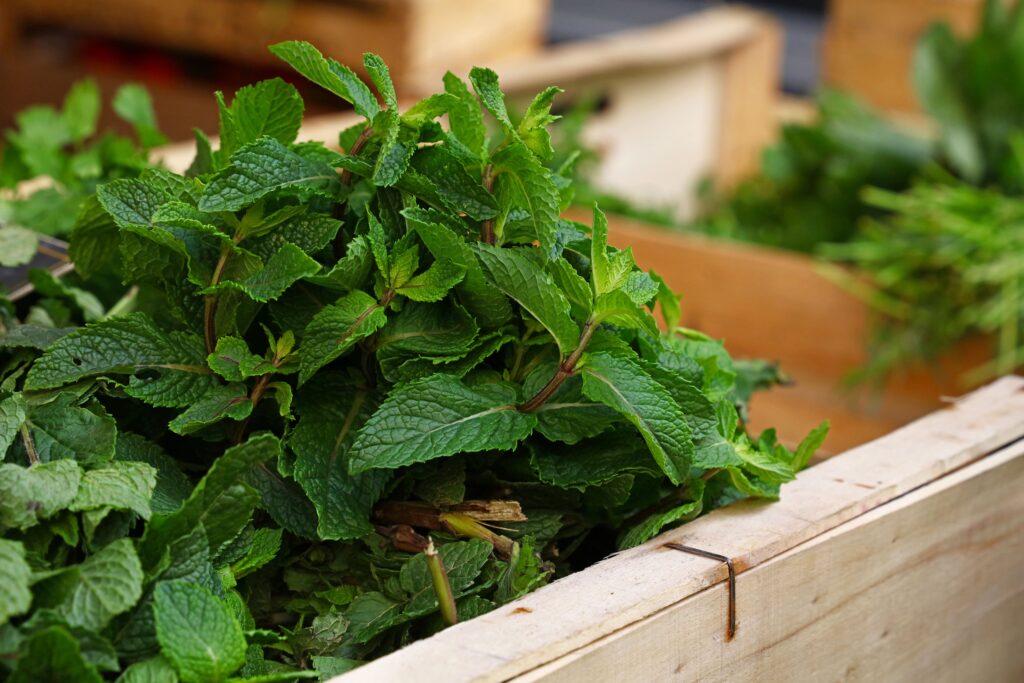
While there are numerous commercial flea and tick control, products available in the market today—ranging from spot-on treatments to oral medications—they often come with a downside: the potential risks associated with harsh chemicals. This has led many pet owners to seek alternative methods that are kinder to their furry companions while still effectively banishing those pesky fleas.
Enter natural flea treatments! Natural flea treatments offer a viable solution for pet parents who prioritize the well-being of their beloved fur babies.
By harnessing the power of nature’s bountiful offerings, these treatments provide us with safe alternatives that effectively combat fleas without exposing our pets—and ourselves—to potentially harmful synthetic substances. With natural remedies becoming increasingly popular among discerning pet owners concerned about chemical overload on their pets, it’s time to explore the world of herbs, essential oils, and other natural ingredients that can help us win the battle against these pesky parasites.
In the sections that follow, we will delve into various natural flea treatments and discover how they can provide gentle relief for our furry friends, allowing them to live their best lives free from incessant itching and discomfort. So buckle up and get ready to embark on a journey where science meets nature in the quest for a flea-free existence!
Understanding Fleas and their Life Cycle
Exploring the Fascinating Life Cycle of Fleas
To conquer the enemy, one must first understand it. Fleas, those tiny, pesky creatures that torment our furry friends, go through a fascinating life cycle. It all starts with eggs discreetly laid by adult fleas on our pet’s skin or within their bedding.
These minuscule white ovals are astonishingly resilient and can survive in various environments for months. Once the eggs hatch, out come the larvae, which resemble tiny worms.
These critters detest light and burrow into dark crevices like carpets, bedding, or soil. They feed on organic debris such as flea feces (yes, you read that right kills fleas!) and shed skin from pets or humans.
After two weeks of indulging in this buffet of grossness, they cocoon themselves into pupae. The pupal stage is akin to a metamorphosis chamber for fleas — they undergo a remarkable transformation inside their cozy cocoons.
This period can last anywhere from several days to several months depending on environmental conditions like temperature and humidity levels. When conditions are favorable (cue your pet’s body heat), an adult flea emerges from its cocoon ready to wreak havoc.
The Infestation Invasion: How Fleas Target Pets and Homes
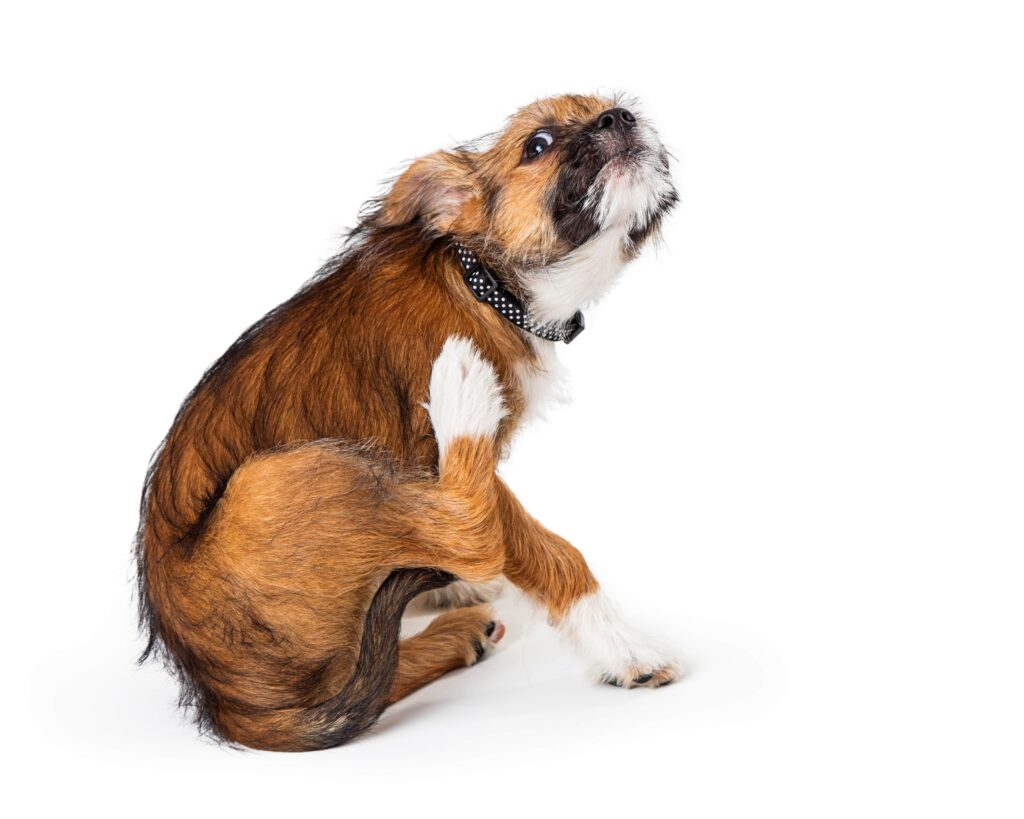
Fleas may be small but they possess incredible jumping abilities that allow them to latch onto passing hosts effortlessly. Your pet happens to be an enticing target due to its warm-blooded nature; their blood is a flea’s preferred meal ticket!
Once aboard your furry companion, these freeloaders quickly settle into their new home. Fleas thrive by continuously feeding on your pet’s blood while continuously breeding like there’s no tomorrow (or so it seems).
The female flea can lay up to 50 eggs per day, making it a race against time to nip the infestation in the bud. As your pet scratches and nibbles at those itchy bites, they inadvertently spread flea eggs and larvae all over their environment.
Soon enough, these resilient little eggs fall into the cracks and crevices of your home — carpets, furniture, bedding — you name it. The warm and cozy interior provides the perfect breeding ground for these pests.
Before you know it, your home becomes a bustling flea metropolis where every carpet fiber serves as their domain. Understanding fleas’ life cycle and how they invade homes enables us to combat these persistent pests more effectively.
Now that we’ve grasped the basics, let’s delve into the world of natural flea treatments to restore peace within our pet-loving abodes.
Benefits of Natural Flea Treatments
Advantages of using natural remedies over chemical-based products
When it comes to finding the most effective flea treatment for your furry friend, natural remedies have several advantages over traditional chemical-based products. One of the primary benefits is that natural flea treatments are generally safer for your pet’s health.
Unlike synthetic treatments, which often contain harsh chemicals that can cause adverse reactions or skin irritations, natural remedies are gentler and less likely to trigger any negative side effects. This is particularly important if your pet has sensitive skin or allergies.
Another advantage of natural flea treatments is their environmental impact. Chemical pesticides used in conventional flea treatments can be harmful not only to your pets but also to the ecosystem as a whole.
These toxic substances can seep into water sources or accumulate in soil, posing a risk to other animals and plants in the area. On the other hand, natural remedies are typically made from organic ingredients that won’t harm the environment, making them a more eco-friendly choice.
Importance of avoiding potential side effects associated with synthetic treatments
Using synthetic flea treatments on your pets can sometimes come with unwanted side effects and risks. Many commercial products contain insecticides like pyrethroids or organophosphates, which may cause adverse reactions such as skin rashes, itching, or even more severe health issues when absorbed into your pet’s bloodstream.
Additionally, certain active ingredients found in conventional flea treatments have been linked to negative effects on the nervous system and even carcinogenic properties in some cases. By opting for natural flea and tick prevention treatments instead, you can avoid these potential dangers and provide a safer alternative for your beloved companion.
It’s also worth mentioning that some chemical-based products require constant reapplication throughout different stages of your pet’s life cycle since they target adult fleas rather than addressing eggs or flea larvae first. Natural remedies often tackle the entire flea life cycle, ensuring that both adult fleas and their offspring are targeted, providing comprehensive protection against infestations.
By choosing natural flea treatments over chemical alternatives, you not only safeguard your pet’s well-being but also contribute to preserving a healthier environment for everyone. It is essential, however, to consult with your veterinarian before making any changes to your pet’s flea control routine, particularly if they have any underlying health conditions or are currently on medication.
Herbal Remedies for Flea Control
Repelling Fleas Naturally with Herbs: Harnessing the Power of Lavender and Rosemary
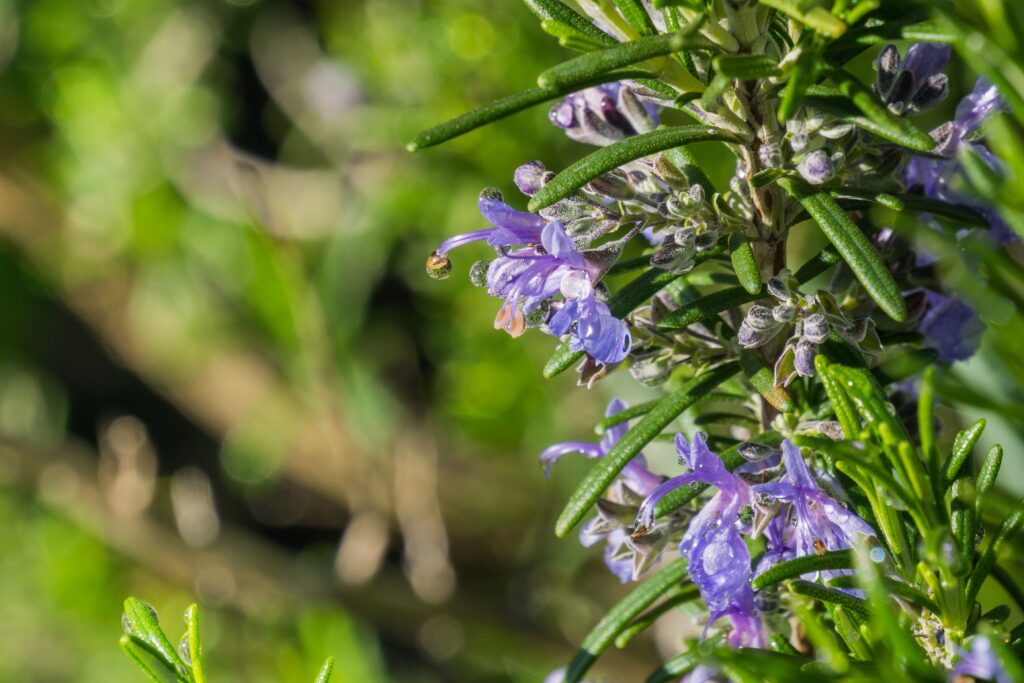
When it comes to combating fleas naturally, herbs can be a pet parent’s best friend. Lavender and rosemary are two exceptional herbs known for their ability to repel these pesky critters.
Not only do they emit fragrances that fleas detest, but they also offer additional benefits for your beloved pets. Lavender, with its delightful floral scent, not only helps to keep fleas at bay but also soothes your pet’s skin, relieving any itchiness caused by existing flea bites.
Rosemary, on the other hand, acts as a natural antiseptic and promotes healthy skin and coat. These powerful herbal remedies are safe for pets when used correctly.
Using Herbs Effectively: Making Herbal Sprays and Sachets
Now that you have some lavender and rosemary on hand let’s talk about how to use them effectively in your fight against fleas. One popular method is making herbal sprays.
To create a simple yet effective spray, steep dried lavender or rosemary in boiling water until it cools down. Once cooled, strain the mixture into a spray bottle, and voila!
You have a natural flea repellent ready to use. To use the spray effectively, lightly mist your pet’s coat before heading outdoors or venturing into flea-prone areas like parks or wooded areas.
This will create an invisible barrier against these irritating pests while leaving your furry friend smelling fresh and clean. Another way to utilize lavender and rosemary is by creating herbal sachets.
Simply place dried herbs into small cloth bags or even old socks tied shut with a string (make sure there are no holes). These sachets can be tucked under pet bedding or placed strategically around the house to naturally deter fleas from infesting your home.
Not only will it smell wonderful, but these sachets will also help prevent reinfestation. Remember, when using herbs as a natural flea repellent, consistency is key.
By incorporating these herbal remedies into your pet’s routine and using them frequently, you’ll significantly reduce the risk of flea infestation in your home and keep your furry companion happy and healthy. Stay tuned for the next section where we explore the incredible benefits of essential oils in combating fleas in dogs naturally!
Essential Oils as Natural Flea Repellents
Overview of Essential Oils Known for Their Flea-Repellent Properties
When it comes to natural flea control for your beloved pets, essential oils can be a powerful ally. Certain essential oils have been found to possess potent anti-flea properties, making them effective and safe alternatives to toxic chemicals found in commercial flea products. Two popular options include cedarwood and lemon essential oils.
Cedarwood oil is known for its strong insect-repelling qualities, including repelling fleas and ticks. Its natural aroma acts as a deterrent to these pesky critters.
Lemon essential oil, on the other hand, contains limonene, which is highly effective in killing fleas and their larvae. The refreshing citrus scent also helps keep your pet smelling fresh.
Instructions on How to Dilute and Apply Essential Oils Safely on Pets
Before using any essential oils on your pets, it’s crucial to dilute them properly as they are highly concentrated substances. To dilute the essential oil of your choice, you’ll need a carrier oil like coconut or almond oil. Mix a few drops of the essential oil with about a teaspoon of carrier oil.
Once you’ve prepared the diluted mixture, you can apply it topically by gently massaging it onto your pet or dog’s coat or fur, paying attention to areas where fleas tend to hide such as around the neck or base of the tail. Be cautious around sensitive areas like the eyes and ears.
If you prefer not to apply the diluted mixture directly onto your pet’s fur, another option is to use a flea collar infused with diluted essential oils. Simply soak a cloth dipped in the diluted mixture and tie it loosely around their neck as an added layer of protection against fleas.
Remember that every pet is unique, so closely observe their reaction after applying the essential oil mixture. In rare cases, certain oils may cause skin irritation in some animals.
If you notice any signs of discomfort or excessive itching, discontinue use immediately and consult your veterinarian. Incorporating essential oils into your flea control routine can help prevent fleas from infesting your pet and your home without exposing them to harmful chemicals.
However, it’s crucial to use these natural oils very responsibly and diligently monitor their effects on your furry friend. With proper dilution and application, essential oils can be a natural and effective way to keep those pesky fleas at bay.
Homemade Flea Shampoos and Dips
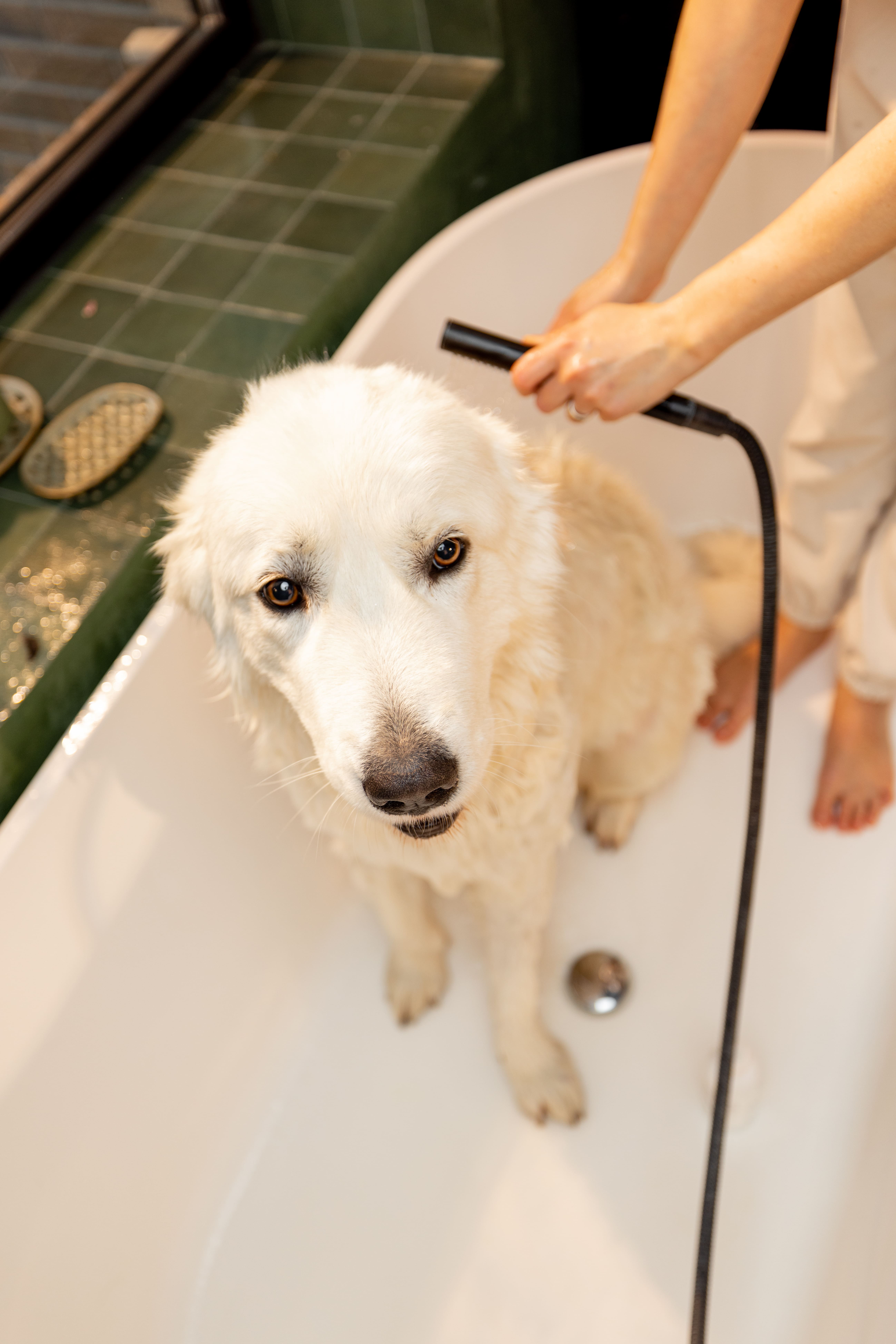
A Spa Day for Your Furry Friend: Homemade Flea Shampoos
Picture this: a warm bubble bath, soothing scents, and the promise of a flea-free existence for your beloved pet. Well, it’s not just a dream!
With homemade flea shampoos, you can pamper your furry companion while effectively fighting those pesky critters. One popular recipe combines the powers of neem oil and apple cider vinegar.
Neem oil, derived from the neem tree, acts as a natural insect repellent, while apple cider vinegar helps restore pH balance in your pet’s skin. To make this magic potion at home, mix four cups of warm water with two tablespoons of neem oil and two tablespoons of apple cider vinegar.
Stir it well until all ingredients are blended perfectly. When applying the shampoo to your pet’s coat, make sure to lather it thoroughly to reach all areas where fleas might be hiding—pay attention to their belly, neck, and tail regions.
Massage gently for a few minutes before rinsing off with lukewarm water. You’ll notice how refreshed and clean your furry friend feels after their spa treatment!
Dipping into Flea-Free Happiness: Homemade Dips
For an extra punch against those unwelcome fleas who dare to invade your pet’s personal space, try homemade dips! These powerful concoctions can send even the most stubborn fleas packing.
One effective recipe involves mixing one cup of lemon juice with two cups of water. The acidic nature of lemon juice helps repel fleas while leaving behind a fresh scent on your pet’s coat.
After preparing the mixture, slowly pour it over the dog’s shampoo and their fur while gently massaging it in. Let the mixture sit for about five minutes before rinsing thoroughly with warm water.
Alternatively, you can create a dip using apple cider vinegar. Combine one cup of apple cider vinegar with three cups of water in a large basin or tub.
After bathing your pet with their regular shampoo, immerse them in the apple cider vinegar solution for around 10 minutes. This will not only help eliminate existing fleas but also prevent them from coming back.
Remember to always keep an eye on your pet’s reaction and discontinue use if any skin irritation occurs. As a word of caution, do not use these dips more frequently than recommended, as excessive use may lead to dryness or irritation.
So, why rely on commercially available flea treatments when you can whip up these all-natural remedies in the comfort of your own home? Your pet deserves the best, and these homemade flea shampoos and dips are undoubtedly the pampering they need to stay happy and itch-free!
Natural Preventative Measures

Tips on maintaining a clean environment to prevent flea infestations
When it comes to preventing fleas, keeping your pet’s environment clean is of utmost importance. Start by regularly vacuuming carpets, rugs, and upholstery where your furry friend spends most of their time. Fleas love to hide in these cozy spots, so make sure you give them a thorough cleaning.
To take things a step further, sprinkle some fine powder made from diatomaceous earth on the carpet fibers before vacuuming. This natural powder acts as a desiccant that dehydrates fleas and gets rid of their eggs, helping to eliminate them.
Another crucial aspect of getting rid of fleas and maintaining a clean environment is washing your pet’s bedding regularly. Fleas can lay eggs in the cozy corners of your dog or cat’s favorite spot.
By washing their bedding in hot water with mild detergent once a week, you ensure that any flea eggs or larvae are killed off. Don’t forget about blankets or any fabric surfaces where your dog sleeps or your pet snoozes; they can also harbor flea eggs.
Explanation of incorporating natural preventive measures like regular grooming and washing bedding
Regular grooming is not only beneficial for keeping your pet looking tidy but also plays an essential role in preventing fleas from taking up residence in their fur. Brushing your pet regularly with a flea comb helps remove adult fleas and their eggs before they have a chance to multiply. Be sure to have a bowl filled with soapy water nearby while combing; if you spot any fleas or ticks, simply dip the comb into the soapy water to drown those pesky critters.
In addition to grooming, consider using natural home remedies such as apple cider vinegar as part of your preventative routine. Dilute apple cider vinegar with equal parts water and use it as a final rinse after bathing your pet.
The smell may not be appealing to fleas, and it can help repel them. Remember to avoid getting the mixture in your pet’s eyes or any open wounds.
Taking these natural preventative measures is especially important if you live in an area where fleas are prevalent or if your pet frequently ventures into environments where they may encounter these pesky critters. By incorporating regular grooming and washing bedding without the use of harsh chemicals, you’ll be one step ahead in keeping your pet free from both flea and tick infestations and reducing the risk of diseases like Lyme disease, which ticks can also transmit.
Remember, prevention is key when it comes to fleas. By maintaining a clean environment and implementing natural preventive measures, you can effectively keep those unwanted guests at bay.
Warnings about Potential Allergies or Sensitivities in Pets when Using Certain Natural Remedies

While natural flea treatments for pets can be effective and safe, it is important to be aware that some pets may have allergies or sensitivities to certain ingredients. Just like humans, our furry friends can have unique reactions to different substances.
Here are a few cautions and considerations to keep in mind when using natural remedies:
1. Patch Testing: Before applying any new natural flea treatment to your pet, do a patch test first. Apply a small amount of the remedy on a small area of your pet’s skin and observe for any signs of irritation or allergic reaction. If there is any redness, swelling, or excessive itching, discontinue use immediately.
2. Essential Oils: While essential oils like cedarwood oil or rosemary oil are often used as natural flea repellents, some pets may be sensitive to these oils. It is recommended to dilute essential oils properly before applying them to your pet’s fur and always follow the instructions carefully.
3. Food Grade Diatomaceous Earth (DE): DE is considered safe when used topically as a natural flea treatment; however, if ingested by pets it can cause irritation in their gastrointestinal tract. Ensure that your pet doesn’t lick or ingest DE during application.
4. Other Existing Flea Treatments: If your pet is already on a different flea treatment regimen or using products like flea collars or spot-on treatments, consult with your veterinarian before introducing any new natural remedies. Mixing different treatments may lead to unwanted interactions or decreased effectiveness.
Remember that every pet is unique, so it’s crucial to pay attention to their individual reactions when using any kind of remedy for fleas. If you notice persistent symptoms such as excessive itching, rashes, respiratory distress, or behavioral changes after using a particular treatment, seek veterinary advice immediately.
Natural flea treatments for pets provide a safe and effective alternative to chemical-based products
By utilizing herbs, essential oils, and homemade remedies, you can effectively manage and prevent flea infestations without exposing your pets to potentially harmful substances. However, it is essential to exercise caution and be mindful of any allergies or sensitivities your pet may have.
By patch testing new remedies, diluting essential oils properly, and consulting with your veterinarian when necessary, you can ensure the well-being of your furry friend throughout the flea treatment process. Remember that prevention is key in keeping fleas at bay – maintaining a clean environment, regular grooming sessions using a flea comb, and washing bedding frequently will contribute to preventing fleas from infesting not only your pet but also your home.
With natural flea treatments, you can enjoy the peace of mind that comes with knowing you’re providing your beloved pet with effective protection against these pesky parasites. So bid farewell to itching and scratching; embrace the natural route for treating fleas and revel in the joy of a happy, healthy pet!
Exterminate Fleas with D-Termination: Las Vegas’ Top Pest Control Service!

If you’re facing flea issues on your Las Vegas property, D-Termination is your ally. Our expert team excels in eliminating flea infestations and restoring comfort and peace to your space. Bid farewell to fleas—opt for D-Termination for effective pest control today!
Reach out to us at 702-919-6310 or visit dtermination.com to book your flea control service and reclaim your space from these pesky pests.
Frequently Asked Questions:
Diatomaceous earth is often considered an effective natural remedy for killing fleas.
While vinegar may help repel fleas on dogs, it’s not a direct killer.
Essential oils like lavender, citronella, and eucalyptus can naturally repel fleas on dogs.
Baking soda can help dehydrate and kill fleas, but it’s not as potent as some other remedies.




